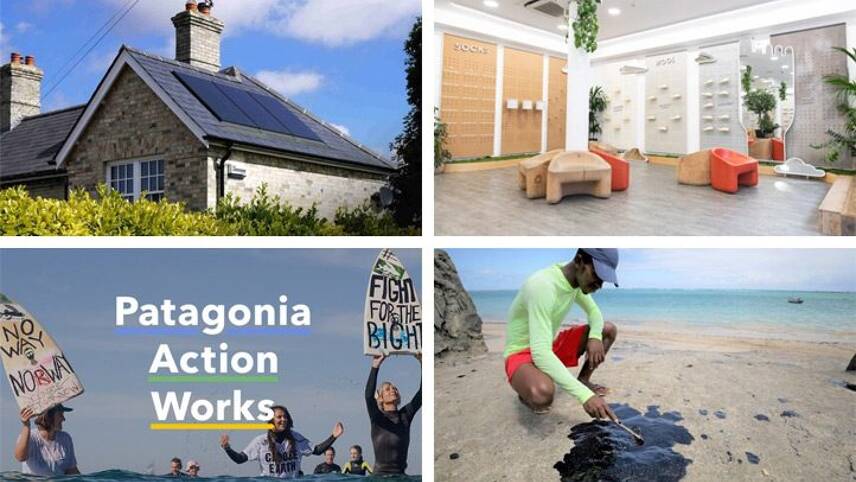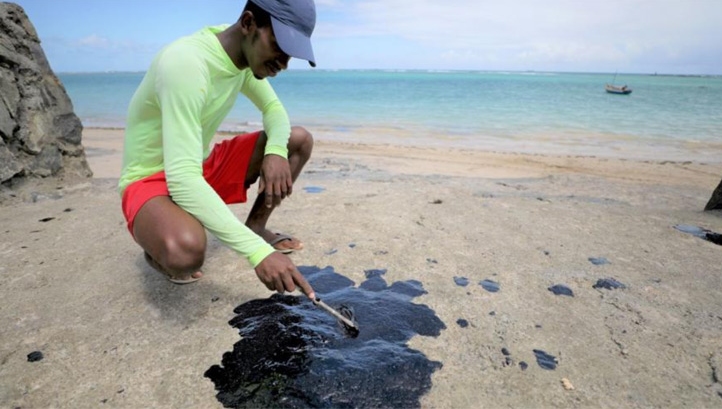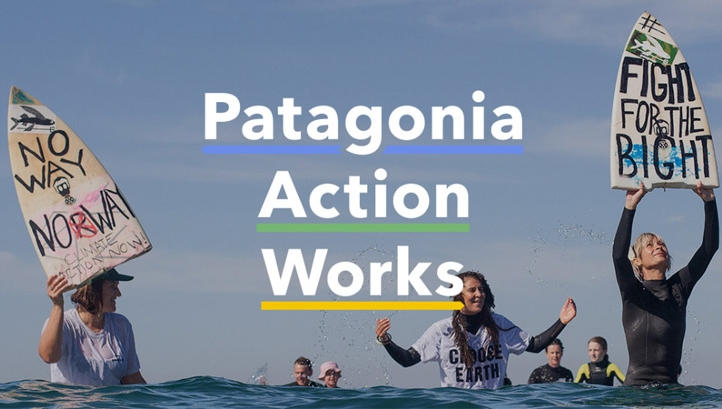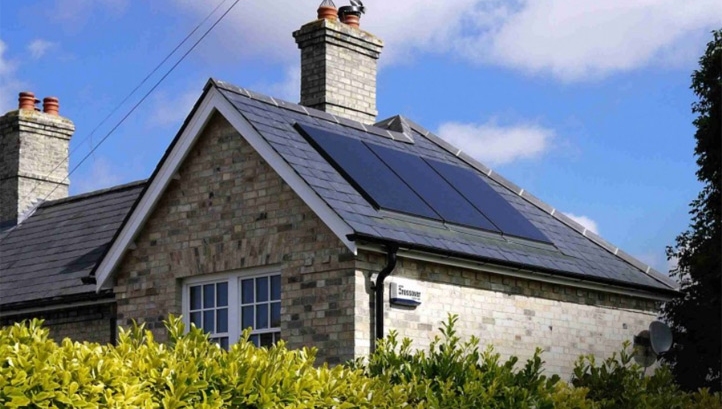Register for free and continue reading
Join our growing army of changemakers and get unlimited access to our premium content

While the holiday was originally intended as a time for American workers to spend away from the office and spend time with loved ones over Thanksgiving, Black Friday has grown to become a global phenomenon. Now, 30% of all goods sold to consumers in the US are sold between Black Friday and Christmas Day, while most residents in the UK, Netherlands, France, South Africa, Ireland and Germany are intending to make at least one discounted purchase this weekend.
But with the public discussion around plastics pollution and climate change having expanded exponentially in recent years – and captivating the hearts and minds of younger generations in particular – the Black Friday frenzy seems to be slowing down. Across the UK and US in 2017, Black Friday sales fell by 4%. Although Brits were forecast to spend an average of £234 on Black Friday each in 2018, an average of just £202 was realised.
Keen to get ahead of this trend, several retailers are deliberately avoiding any models which could whip shoppers into a spending spree. The likes of Asda, Monki, Ikea, Homebase, Next and Marks and Spencer (M&S) have said they will not offer discounts at Black Friday.
Moreover, many other retailers are going one step further and using the occasion to champion resource efficiency, social sustainability and environmental conservation. With this in mind, edie has rounded up X ways retailers are using Black Friday to promote brand purpose beyond their products.
Everlane’s Black Friday Fund for the oceans
Back in 2014, US-based fashion retailer Everlane launched its Black Friday Fund – a pot of money it donates to charities, in lieu of offering sales.
This year, the fund will be donated to Oceana – a non-profit working to tackle ocean issues ranging from plastics pollution and overfishing, to coral bleaching and acidification. Everlane will be donating $10 to the Fund for every order placed before Monday (2 December). It is anticipating in excess of 30,000 orders, meaning that $300,000 is likely to be raised.
The move comes as Everlane works towards removing all virgin plastics from its products and supply chains by 2021. This ambition was announced last year and, to date, Everlane has reduced its monthly virgin plastics output by 75%. Another of the firm’s key moves against waste is that it does not offer sales when overstock of products are produced. Instead, it provides shoppers with information on how garments and made and then allows them to choose what they pay.
Allbirds empties shelves to make way for gigs
Shoe brand Allbirds is ceasing all in-store trading in the UK today. Instead of simply closing stores, it is removing all products from shelves and using its store space to host free workshops and live music events.
The San-Francisco based company has said that each of the workshops will “bring the natural materials it uses to life, pushing creativity overconsumption”. Activities will include pom-pom making, creating pavlova and other sweet treats, and floristry.
“A statement against discount-driven impulse buying and single-use purchases, Allbirds’s take on Black Friday celebrates conscious consumerism, opening up the space for immersive workshops and tactile experiences,” Allbirds said in a statement.
In a similar move, British fashion brand Raeburn will cease sales at all of its UK stores but remain open to offer repair services.
Today we’re closed for business, and open for creativity. We’ve disabled our online shop, closed our physical stores, and opened the doors of the RÆBURN Lab to welcome our community to benefit from free repairs from any brand 🖤#BuyNothingDay pic.twitter.com/dG3do8SYEC
— RÆBURN (@Raeburn_Design) November 29, 2019
Patagonia urges donations over purchases
Outdoor retailer Patagonia is widely regarded as a vanguard of anti-Black-Friday activism. In 2011, it used its advertising around this time of year to tell shoppers: “Do not buy this jacket”. Since then, it has used the occasion to encourage and enable charitable donations over purchases.
Through its Action Works platform, Patagonia is marking the festive shopping period by matching all donations made to grassroots organisations working to preserve and restore nature. Donors can choose to send a digital eCard, print a card from home or pick up a physical card in any Patagonia store in the UK, US or mainland Europe. Crucially, no purchase is required for donations to be eligible for matching.
Patagonia will match donations until 31 December, up to a maximum match of $10,000,00.
eSpares boosts ‘fix first’ efforts for electronics
Many shoppers will head to the technology aisle of their favorite department store on Black Friday, with the occasion now world-famous for videos of crowds trampling over each other to grab deals on TVs, games consoles, laptops and mobile phones.
eSpares, an e-retailer selling spare parts for domestic appliances across the UK, US and several markets in mainland Europe, is hoping to buck this trend by bolstering its ‘Fix First’ campaign, which encourages shoppers to buy parts instead of whole new products and to learn how to DIY at home.
The company has expanded its online advice centre to more than 500 ‘how to’ videos, 700 fault fix articles and 9,000 appliance manuals. Moreover, it is using its website to tell users that UK retailers are hoping to sell £1.4bn of appliances and electronics before Christmas – 70% of which is likely to be “unaccounted for” when it reaches the end-of-life stage.
Similarly, mobile phone network GiffGaff’s Black Friday campaign is centred around helping customers to choose refurbished mobile phones over new, or to repair their existing handset.
Black Friday pop-up shop. One day only. 100 refurbished items up for grabs. Pay nothing. Just make a pledge 😊
📍9-11 Short Gardens, Covent Garden, WC2H 9AT
⏳ 10am-5pmhttps://t.co/1MEONiN8Xc pic.twitter.com/1SJ2C7kcNV— giffgaff (@giffgaff) November 29, 2019
E.ON promotes home solar
In the wake of the incumbent Government’s decision to axe the Feed-In Tariff (FiT) scheme, which provided payments to owners of small-scale renewable generators at a fixed rate per unit of electricity produced, rates of solar installations by homeowners, SMEs and local authorities have fallen.v
E.ON is therefore marking Black Friday by offering customers £400 off its “in-roof” solar panel offering. Customers can spread the cost of their array – which can be provided as a standalone or alongside battery storage – over one, two, or three years.
E.ON claims that a solar customers who opt for battery systems use 30% more of the electricity they generate than with solar panels alone, and that this model will ultimately reduce bills in the long-term. This calculation is based on a south-facing property in central England with a 40-degree roof tilt and no shading, with electricity consumption of 4,900 kWh.
SMEs go big on tree planting
Following in the footsteps of Pukka Herbs and TAMGA Designs, Brighton-based fashion brand Zola Amour and US-based B-Corp TenTree are both giving shoppers the chance to plant a tree in exchange for their purchase, instead of offering any discounts.
Zola Amour – which employs just one garment maker to ensure a transparent supply chain – has partnered with TreeSisters to plant five trees for every £50+ purchase and 10 trees for every £100+ purchase.
TenTree, meanwhile, will continue to plant 10 trees for every item it sells, and is offering a 20% site-wide discount. The trees it plants are registered through organisations including the Canadian Government, edenprojects, Trees For The Future and One Tree Planted.
London hosts its first ‘Green Friday’ festival
Going beyond one individual organization, London’s first ‘Green Friday Festival’ will see small brands, designers, campaigners, thought leaders and upcyclers gathering in London to promote alternatives to fast fashion – including repair, resale, rental, customisation, clothes swaps and reuse.
The festival features four talks and four workshops over three days in five venues across London, without a shopping opportunity in sight. Participants will include the TUC, Chelsea Fashion School, designer Phoebe English and Revival Collective.
“This Black Friday, we will see fast fashion retailers selling t-shirts and dresses for the same price as burgers and fries. But cheap disposable clothes come at an environmental and social cost,” Green Friday Collective member Nicholas Robin said.
Growing natural fibres, such as cotton, grabs land and guzzles water. Producing synthetic fibres like polyester contributes to ocean pollution and the climate crisis. Our biggest brands and retailers outsource production to countries with low pay and poor records on trade union rights. The Green Friday festival will celebrate second-hand, sharing, hiring and mending instead.”
Sarah George






Hi Edie,
Thank you for this article. I am happy to read that some big-name businesses are choosing sustainability and resource efficiency over the opportunity of cashing in on the Black Friday trend, effectively starting their own movement – Green Friday. With this choice, these brands have endeared themselves more to people by showing they are not just existing for the money.
I will go on to share this article to our social media followers.
Peace
Joyce
Better World Apparel